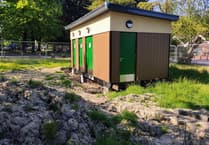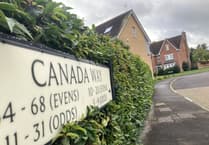TV and political raconteur Michael Portillo’s visit to Haslemere as part of his Great British Railway Journeys was broadcast on BBC Two last week.
Portillo stepped off the train at Haslemere to examine the story of the Dolmetsch family, who owned a workshop in Haslemere where it is said the recorder became one of the most common instruments in the country.
The episode is part four of series 15 of Portillo’s Great British Railways Journey and can be watched back on BBC iPlayer.
Portillo said: “I’ve come to Haslemere, a historic town in the south of Surrey, to meet the daughter of the man credited with post-war popularisation of an instrument we must of all of had a go at.”
Maguerite Dolmetsch, the daughter of Carl Dolmetsch, and her husband Dr Brian Blood were interviewed inside Haslemere Museum’s library about their family history.
The musical family, who were traditionally organ and piano builders, originated from Le Mans, France. They moved to London and then Haslemere after the First World War.
During the Second World War, instrument production ceased and the workshop was converted to making components for aircraft guns.
After the war, access to cheap plastics gave rise to the mass-production of recorders that could be distributed to schools all over the country.
The recorders sold at the time for just £2 and 2 shillings, making them very appealing to councils trying to encourage children to learn music.
Guided by Tim Frayne, Portillo then went on to play Hot Cross Buns in the museum’s lecture hall.




